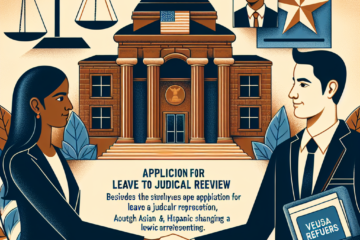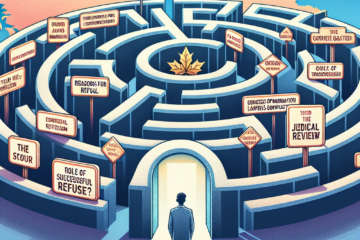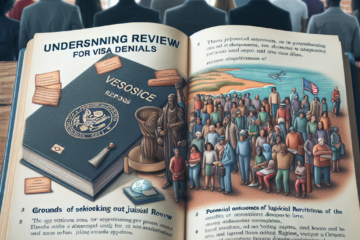Introduction
We often get inquiries from visa applicants who have faced the disappointment of a Canadian visa rejection. One of the common reasons quoted by visa officers is, “I am not satisfied that you will leave Canada at the end of your stay, as stipulated in subsection 216(1) of the IRPR, based on your family ties in Canada and in your country of residence.”
So, what does this mean, and more importantly, how can you address this issue in your future applications? In this blog post, we will shed light on these aspects.
Table of contents
Understanding Subsection 216(1) of the IRPR
Subsection 216(1) of the Immigration and Refugee Protection Regulations (IRPR) concerns the requirement for temporary residents (visitors, students, and workers) to leave Canada by the end of the period authorized for their stay. When the visa officer mentions this section, it implies they are not convinced that the applicant will leave Canada when their visa expires.
The Role of Family Ties
Family ties in Canada and in your country of residence play a critical role in your visa application. While strong ties in Canada can increase your inclination to overstay, strong ties in your country of residence can act as a compelling reason for you to return home once your visa expires.
Strengthening Your Visa Application
To increase your chances of visa approval, it is important to effectively demonstrate your intention to return to your home country once your visa expires. This can be achieved by:
- Evidence of strong ties to your home country: This can include property, family, employment, or businesses.
- Proof of your travel history: If you have previously traveled abroad and returned within the validity of your visa, it shows your compliance with immigration rules.
- Evidence of financial stability: This helps convince the officer that you are visiting Canada for the reasons stated in your application and not for economic reasons.
Dealing with Visa Rejection
Getting a visa rejection can be disheartening. But remember, it’s not the end of the road. You can take your visa rejection to the Federal Court for a Judicial Review to remove the refusal from your application history. After which, we ask for another visa to review your file and hopefully this time around you will receive your visa. Take into account the reasons for rejection and work on strengthening your application.
Frequently Asked Questions
Why was my Canadian visa application rejected under subsection 216(1) of the IRPR?
What role do family ties play in the visa application?
How can I strengthen my visa application?
Can I apply for a visa again after rejection?
What is the meaning of “ties to your home country”?
Can a visa officer reject my application based on presumption?
Can I appeal a visa rejection?
What evidence can I provide to show strong ties to my home country?
Does a past visa rejection affect my future applications?
Can an immigration lawyer help in improving the chances of visa approval?
Conclusion
While a Canadian visa rejection can be a setback, it’s not the end of your journey. With a thorough understanding of subsection 216(1) of the IRPR, a clear display of your intent to return to your home country, and possibly some professional guidance, your chances of successful future applications can be significantly improved.
If you would like to consult for legal advice, schedule a consultation with us today! Read more throughout our blogs!



0 Comments